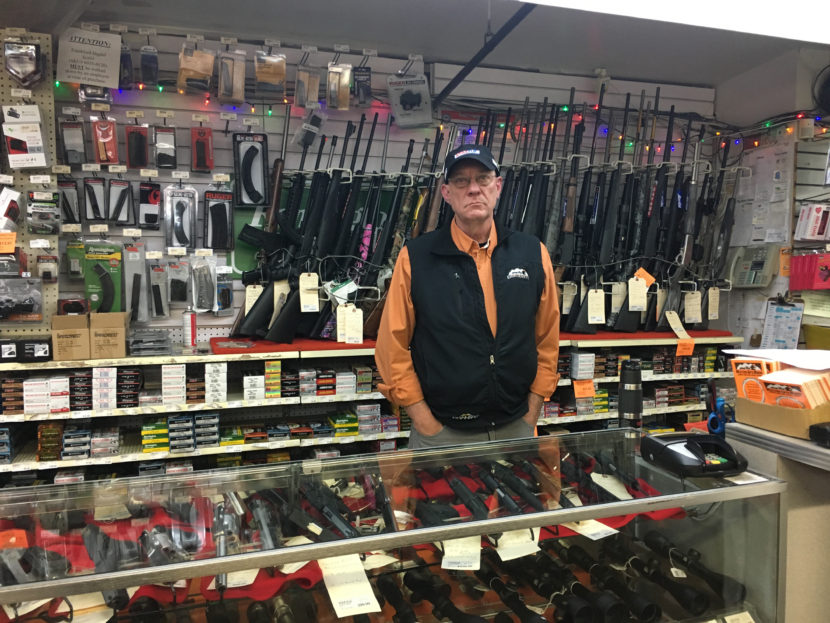
When Americans buy guns, they’re asked whether they use marijuana. If they say yes, they can’t buy the gun. U.S. Sen. Lisa Murkowski wants to change that, and some Alaskan gun sellers, marijuana industry advocates and local officials applaud the move.
Juneau Assembly member Jesse Kiehl owns several rifles and pistols. And he also supported the ballot question legalizing marijuana in Alaska. Kiehl was pleased when the Wall Street Journal reported that Murkowski wants the federal government to stop asking whether gun buyers use marijuana.
“Where you have a conflict between a federal law that maybe doesn’t make a lot of a sense and privacy right that the Alaska Constitution respects and that now Alaska law respects, you have a weird situation with wiggle room,” Kiehl said. “And that’s not good public policy. It’s not good public safety.”
Murkowski asked U.S. Attorney General Loretta Lynch whether Lynch could change the policy requiring gun buyers to answer the question on the federal firearms transaction record, or if a new law is needed. The form asks prospective gun buyers if they’re “unlawful users of, or addicted to, marijuana” or other controlled substances. Murkowski noted an Alaska ballot question two years ago set rules for legally growing and selling marijuana. Legal marijuana sales started in Valdez in October and have been rolling out in other parts of Alaska. It remains illegal under federal law.

The Department of Justice said in its response that the department was enforcing federal drug and gun control laws. In an email, Murkowski said she’s disappointed with the reply, because it reflects a bias against firearm owners.
Some gun sellers don’t like the question, including John Weedman. He’s the general manager of Western Auto Marine, a Juneau store that sells guns. He said that with the change in state law, the federal question is outdated.
Weedman said he hasn’t heard concerns from customers.
“If an applicant puts down on the form that they’re not a user of marijuana, we have no way to verify one way or another on that, OK? And we have no obligation to do that,” Weedman said. “We have a reasonable suspicion — they come in smelling like pot, then yeah — that’s a different story.”
Bruce Schulte is the former chairman of the state Marijuana Control Board and spokesman for the Coalition for Responsible Cannabis Legislation. He said in the short term, he’d like to see the federal government stop asking the question about pot use. In the long term, he said new federal laws are needed.
“The question alone – it hearkens back to an attitude that’s just not in sync with current social norms,” Schulte said.
Schulte noted that the federal government doesn’t ask about alcohol use on the firearm transaction form, though he said it’s more dangerous. He also said some injured military veterans may choose to use marijuana rather than prescription opioids, whose use, combined with guns, could also be more dangerous.
It’s a point reinforced by Kiehl, the Juneau Assembly member.
“I’ve filled out this form quite a few times myself,” Kiehl said. “And it does not ask if you ever take the gun out of where it’s stored when you’ve been drinking. It does not ask if you take a perfectly legal prescription medication that makes you dopey as a side effect. Those are serious safety issues.”
What happens with federal enforcement of marijuana laws – and how they interact with legalization in Alaska and other states – will depend on the next attorney general. President-elect Donald Trump’s choice is Alabama Sen. Jeff Sessions. Sessions opposes legal marijuana, but it’s not clear how he’ll handle state legalization.
